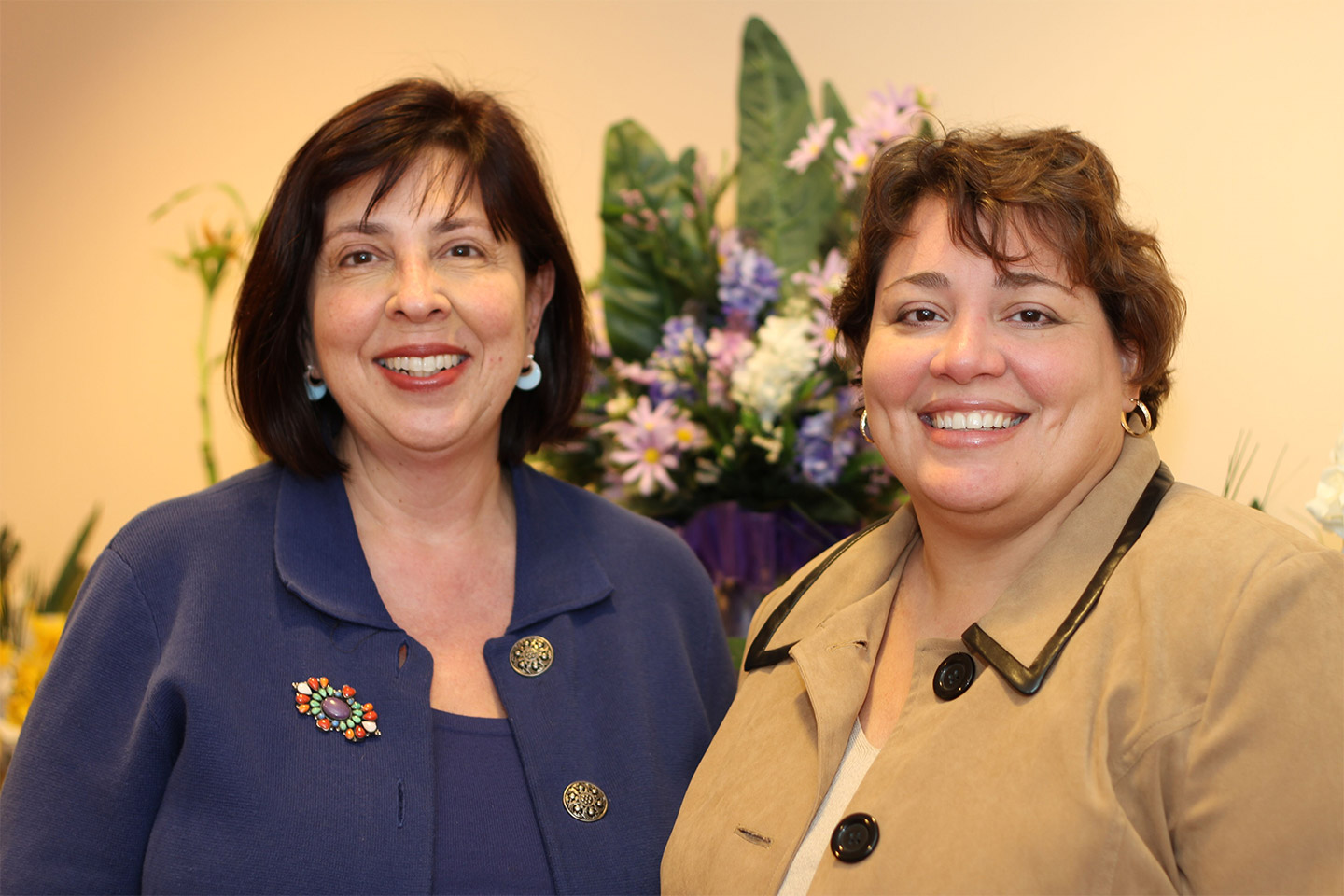Two Leaders, One Mission: Closing Equity Gaps in Latino Student Success
May 22, 2019

By Julie Bos, ECMC Foundation Contributing Writer
Two leaders passionate about the same cause, a chance meeting in Washington, D.C., and a friendship that would culminate in a common mission to accelerate Latino success in higher education.
That’s the story of Sarita Brown and Deborah Santiago, who cofounded Excelencia in Education, a nonprofit that links research, policy and practice to serve Latino students in their pursuit of postsecondary degrees.
While Sarita’s and Deborah’s mission is the same, their individual journeys are quite different.
Deborah was born in Puerto Rico and grew up all over the U.S. East Coast and overseas following her dad’s military service. In her junior year of high school, Deborah’s parents were transferred to Spain, but they encouraged her to stay in the U.S. so she could go to college. Determined to succeed, but not quite sure how, Deborah sought advice from teachers, peers and friends. Drawing on her support network, Deborah learned how to apply for financial aid, complete college applications and conduct interviews.
“That early learning experience was seminal in grounding my commitment to higher education,” said Deborah. “As I figured it out on my own, it created a knowledge base that would eventually help me do this for others as well.”
Deborah ended up attending and graduating from the University of Mary Washington with a bachelor’s degree in economics, and later, earned her master’s degree in public policy from Virginia Polytechnic Institute and State University. She then joined a two-year Presidential Management internship program for the federal government and rotated through various areas, including the U.S. Department of Education, where she met Sarita.
Sarita grew up in San Antonio, Texas, and in the late 70s, attended University of Texas at Austin (UT Austin)—a large campus with very few African-American and Mexican-American students, despite the state’s large ethnic and racial diversity. While pursuing a bachelor’s degree in communications and ethnic studies, and later a master’s degree in communications, Sarita often questioned the reasons for the inequity—even challenging the Dean of the Graduate program, who ended up offering Sarita a job. She spent the next 15 years at UT Austin building a national model promoting success for marginalized students in graduate education, ultimately helping the university become number one in graduating Latino PhDs and in the top 20 for graduating African-American PhDs.
In 1993, Sarita left UT Austin to work in the nation’s capital and in 1997 was recruited by the Clinton administration to serve as the Executive Director of the White House Initiative for Educational Excellence for Hispanic Americans. This was right on the heels of the designation of Hispanic Serving Institutions (HSIs) for campuses where a significant proportion (at least 25%) of the full-time student body was Latino. From this designation, HSIs became eligible to receive additional federal funding.
“It was a heated time due to the reauthorization of the Higher Education Act and pending legislation to support HSIs,” said Sarita. “I took the position being very aware of the challenges, but I also knew how important the issue was. I really believed that with access to 24 federal agencies and a desire to engage and serve Latino students, it would be a meaningful opportunity.”
During her first week as a political appointee, Sarita met Deborah, who was serving as a policy analyst in the U.S. Department of Education and had ample data on the very topic that was core to the debate around HSIs. Within a few months, Sarita asked Deborah to serve as the Deputy Director of the White House initiative and they worked together for two years before the Clinton administration ended.
Sarita and Deborah went their separate ways, but their friendship and common passion remained. Several years later, they reconnected to write a paper on the positive opportunities within higher education to serve Latino students and were inspired to start an initiative of their own.
“We knew there needed to be more voices in public policy, focusing on the Latino population from an asset-based perspective instead of a deficit-based crisis,” said Deborah. “We found funding and decided start our own organization—Excelencia in Education.”
While Latino students have become the largest and most rapidly growing group in higher education, the system has not gained much traction in helping increase the success of Latino students. According to U.S. Census data, only 25.1% of Latino adults (25 and older) have earned an associate’s degree or higher, compared to 44.4% of all adults.
ECMC Foundation’s Support of Excelencia in Education
Today, with support from ECMC Foundation and other funders, Excelencia in Education is working to accelerate Latino college success by promoting a comprehensive, multi-track approach to uplift the best practices of leading institutions and to support campus’ emerging efforts through two tools—the Seal of Excelencia and the Ladder of Engagement.
The Ladder of Engagement is a series of strategic activities to help institutions better serve Latino students and improve their academic outcomes for college success. This tool is a core companion effort to the Seal of Excelencia, a voluntary certification system designed to motivate positive change and assist institutions in building needed capacity to significantly increase Latino completion.
Both efforts are based on Excelencia in Education’s years of identifying what works within institutions and collaborating with trend-setting institutions to increase Latino completion success.
“For the past 30 years, people have been talking about Latino demographics, but the pace of change in higher education has been very slow,” said Sarita. “Our work makes it much easier for institutions who are finally ready to grow their Latino enrollments and do all they can to help them graduate. It will help close the gaps and benefit a whole new generation of college-goers.”
